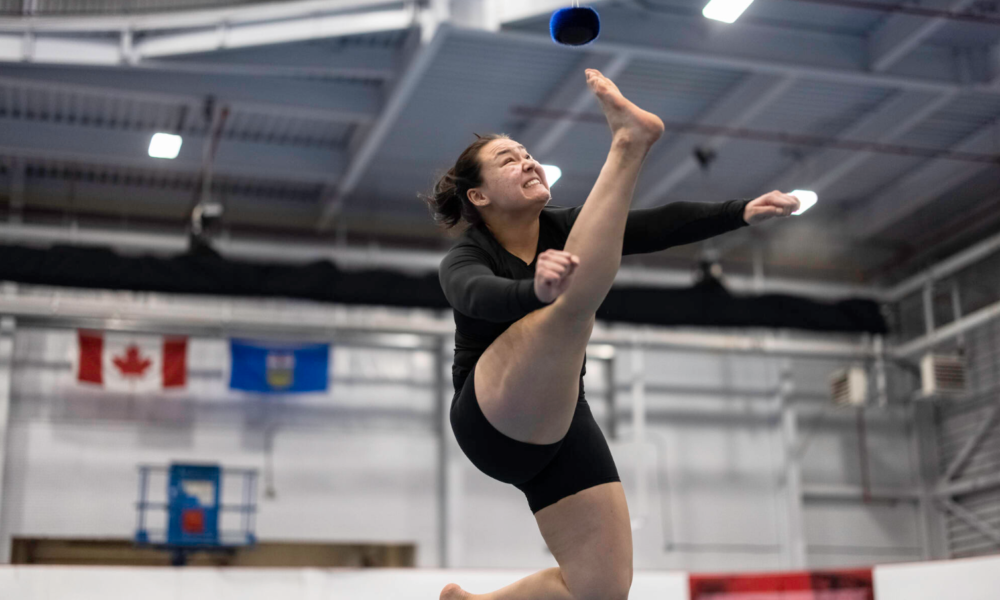After being postponed again in 2022 due to COVID-19 concerns, the Arctic Winter Games finally made their long-awaited return on Jan. 29 in Wood Buffalo, Alberta. Last held in 2018, the four-day culture and sport competition saw athletes from across the circumpolar region face off in over 17 sporting events.
“All of the athletes were so excited to go to the 2020 games in Whitehorse. And then, you know, a week before we were supposed to go to these games, they were cancelled,” four-time Arctic Sports medallist Danica Taylor told The McGill Tribune. “[The cancellation of the 2020 Edition] was probably one of the most disappointing things most of us ha[d] heard in a while.”
The 2023 edition of the Arctic Games reunited over 2,000 athletes and eight teams: Alaska, Greenland, North West Territories, Yukon, Nunavut, Nunavik-Quebec, Northern Alberta, and the Sápmi region that stretches across Norway, Sweden, and Finland. For the first time since 1992, no Russian territory will be represented in the Games, as the International Arctic Games Committee suspended both Russia and the Yamal delegation in condemnation of Russia’s invasion of Ukraine. The suspension prompted the 2026 Games to potentially be relocated to Yellowknife as Yamal is currently slated to host them.
“If they are to come to Yellowknife, I just hope these games just get so much more exposure,” said Taylor, a Yellowknife resident herself. “I think these are one of the most exciting games to watch and to participate in.”
Among the 20 sporting events represented this year were biathlon ski, curling, ice hockey, and figure skating. The Games also featured an Arctic Sports category that included events such as Alaskan high kick, sledge jump, and knuckle hop. Many of the Arctic Sports find their origins in cultural practices, such as high kick, which originated from Inuit hunting.
The Arctic Games are all about community and perseverance—values that are reflected in the Dene Games, an official event that was incorporated in 1990. Consisting of five events, the Dene Games are rooted in the traditional practices of Dene Nation, celebrating specific skills that demonstrate both strength and technical skill. Sportsmanship and camaraderie are at the heart of the Dene Games, and the concluding event, Hand Games, originates from the celebration of successful hunts.
“Carrying on the traditions is just so important,” Taylor said. ”It’s so great to go to these games and then have it all unfold.”
This year, Taylor competed in five Arctic Sports disciplines: One-foot high kick, two-foot high kick, arm pull, Alaskan high kick, and sledge jump, and medalled in the first three.
Memorable moments from this year’s Games included the last participation of knuckle hop veteran Chris Stipdonk, who seized gold, and at 37 years old, decided to retire from competition. He established the world record in 2020 and again at the Indigenous Summer Games in 2022. Nunavut celebrated their first-ever gold medal in hockey, brought home by their U19 boys team.
With over 2,000 volunteers and an emphasis placed on spectator participation, the support from those in the crowd was constant.
“I think it’s such a great thing to, you know, have that support, not only from people from your contingent […] but from every other place as well,” Taylor said. “I know there were a lot of Greenlandic and Alaskan people watching and it was such a great feeling.”
When it comes to the future of Arctic sports, there are discussions of incorporating them into the 2027 Canada Winter Games in Whitehorse. Many participants and fans hope for them to be included in other international competitions in the years to come.
“If that is to happen, these are great games to spread awareness of Indigenous cultures,” Taylor said. “I would love to see it […] show its debut at the Canada Winter Games, and also, I believe having them included in as many international sporting events would just show how unique these games are. I don’t think there’s really a sport quite like it.”









